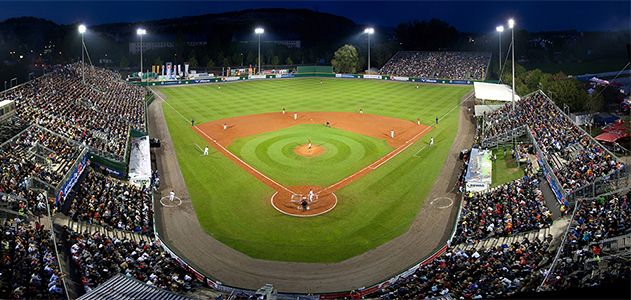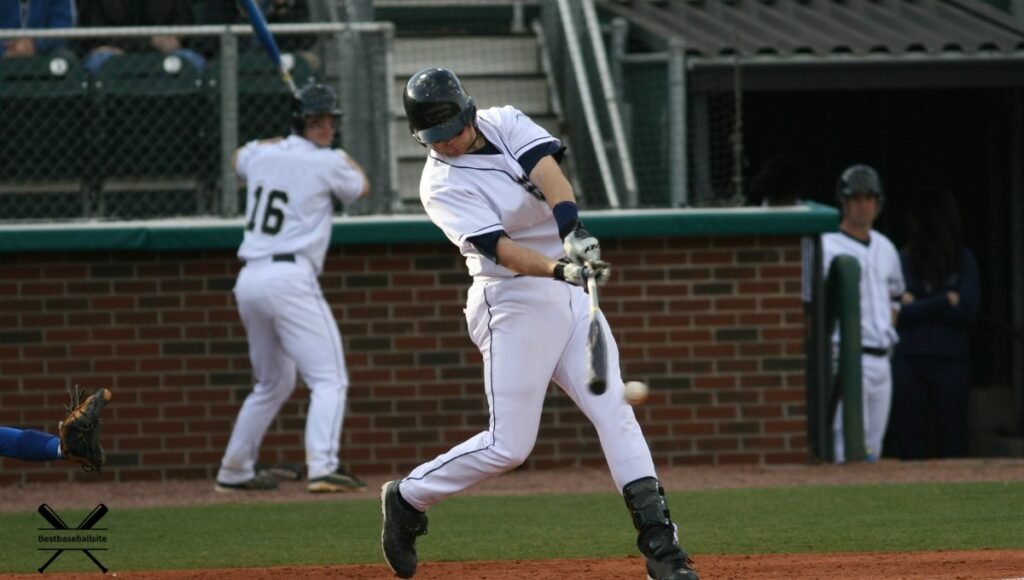Baseball isn’t popular in Europe due to the dominance of soccer and cultural sports traditions. Historical development favored local sports over American baseball.
Europe offers a rich tapestry of sports, but baseball remains on the fringes. While the game is a cornerstone of American culture, its European story is quite different. Soccer, known as football in Europe, reigns supreme, deeply enmeshed in the continent’s social fabric.
Other traditional sports like rugby, cricket, and cycling have also claimed their historical stake, often surpassing baseball in popularity. Europeans have developed their athletic preferences over decades, where baseball simply hasn’t been part of the narrative. Despite efforts to globalize it, baseball confronts a competitive European sports landscape, making it challenging to cultivate a widespread following. This complex interplay of history, culture, and existing sports fervor explains baseball’s position in Europe’s sporting lineup.
Cultural Roots Of Baseball
The cultural roots of baseball run deep through the American psyche.
This bat-and-ball game evolved from older bat-and-ball games in England and Ireland.
Baseball is entwined with American history and identity.
Baseball’s American Heartland
Known as America’s pastime, baseball holds a special place in the United States.
Community gatherings, local teams, and childhood memories are often centered around this sport.
- Major League Baseball (MLB) celebrates this connection each season.
- The sport is ingrained in educational institutions from a young age.
- Icons like Babe Ruth and Jackie Robinson are woven into the national fabric.
European Sporting Traditions
In contrast, Europe has its own rich sporting heritage.
Football, known as soccer in the US, stands as the undisputed champion.
Rugby, cricket, and tennis also have deep historic connections.
| Sport | Origin | Popularity |
|---|---|---|
| Football (Soccer) | England | Extremely popular |
| Rugby | England | Widely followed |
| Cricket | England | Popular in some regions |
| Tennis | France/England | Popular |
Each European country has developed and nurtured these sports over centuries.
This has made it challenging for baseball to find a foothold.
Sporting preferences are passed down through generations, creating a deep-rooted tradition.
Soccer’s European Dominion
The grasp soccer holds over Europe is undeniable. From packed stadiums to passionate chants, the sport reigns supreme across the continent. This dominion overshadows other sports, including baseball, which struggles to gain a foothold in the European landscape. Understanding why soccer captivates Europeans sheds light on baseball’s limited appeal in this part of the world.
Soccer As Europe’s Favorite
Several factors contribute to soccer’s status as Europe’s beloved sport. Soccer, also known as football, offers non-stop action and universal appeal. It requires minimal equipment, making it accessible to everyone. Traditions passed through generations cement the sport’s place in European culture. Fans rally behind local clubs, fostering community spirit and regional pride. The game’s simplicity often translates to a unifying language across different nations.
Comparing soccer’s accessibility to baseball, the latter requires more specialized gear and infrastructure. This alone can serve as a major barrier to widespread adoption in European countries.
- Soccer thrives on simplicity and ease of play.
- Community ties strengthen soccer’s cultural impact.
- Regional rivalries create a compelling narrative for fans.
Historical Growth Of Soccer
The growth of soccer in Europe is steeped in history. Developed from ancient games, modern soccer began to take shape in the 19th century. It swiftly spread across the continent, riding on the back of industrialization and urbanization. Schools and factories adopted the game, promoting camaraderie and competition.
| Century | Milestone |
|---|---|
| 19th | Soccer rules standardized |
| 20th | First international tournaments |
| 21st | Global expansion of soccer leagues |
The 20th century witnessed soccer’s meteoric rise to prominence, with the establishment of numerous national and international competitions. These competitions served to embed soccer deeply in Europe’s sporting psyche. The fervor for soccer only grew as teams became symbols of national identity and pride.
Europe’s deep-rooted passion for soccer presents a challenging environment for baseball to penetrate. The dedication to soccer stems from a combination of historical significance, cultural integration, and the communal experience it offers. For now, baseball remains on the periphery of this soccer stronghold.
Economic Factors Limiting Baseball’s Reach
Economic factors play a crucial role in baseball’s limited popularity in Europe. Unlike other well-established sports, baseball faces challenges that restrict its expansion and mass appeal on the continent. These barriers range from marketing difficulties to substantial fiscal demands for infrastructure and training facilities.
The Marketing Challenge
Baseball struggles to capture the European audience due to a crowded sports market. With football (soccer), rugby, and cricket already dominating headlines and broadcast schedules, baseball competes for attention and resources. Marketing baseball in Europe requires significant investment to challenge incumbent sports that have deep cultural roots and loyal fan bases.
Infrastructure And Investment Barriers
- Stadiums and facilities for baseball are scarce, leading to high costs for development.
- Training programs and clubs need consistent funding to nurture local talent.
- Financial barriers deter local governments and private sector sponsors from investing, preferring traditional sports with proven returns.

Credit: blogs.library.duke.edu
Influence Of Media And Sponsorship
The sway of media coverage and sponsorship plays a critical role in the popularity of any sport. For baseball in Europe, these factors significantly impact its spread and appeal.
Media Coverage Disparities
Media has a heavyweight in determining a sport’s prominence. In Europe, sports like football command the airwaves, overshadowing baseball. Let’s dig into the reasons.
- Broadcasting of baseball is sparse in European networks.
- With low visibility, fewer Europeans grow familiar with the game.
- Local sports channels rarely allocate time for baseball highlights.
- Cultural familiarity fuels interest in sports, and baseball lacks this in European media.
Sponsorship Interests In Sports
Where investment goes, attention follows. Sponsorship ties often dictate which sports get the spotlight. In Europe, these ties don’t favor baseball. Below are clear insights.
- Major brands invest in sports with proven returns, largely ignoring baseball.
- European companies prioritize football, cycling, and tennis.
- Baseball leagues struggle to attract lucrative sponsorship deals.
- Without strong sponsorship, baseball lacks the funds to grow at the grassroots level.
Climate And Seasonal Dynamics
Understanding the climate and seasonal dynamics is crucial when discussing the popularity of sports across different regions. In Europe, the preference for certain sports often aligns with the prevailing weather patterns and the traditional sporting calendar. This sheds light on why baseball, a sport with deep roots in the climate and culture of North America, has not quite found its footing in the European arena. Here’s a closer look.
Weather Influences On Sport Popularity
The popularity of a sport can be heavily influenced by the local climate it’s played in. Baseball, known for its sunny, lengthy games, fits the warmer climates it thrives in. However, Europe’s weather can be unpredictable with rain and cooler temperatures, making outdoor sports with long durations like baseball less appealing. Sports that can adapt to varying European weather conditions have gained more popularity.
Sporting Seasons In Europe
European sports schedules revolve around the seasons, with most outdoor team sports played from autumn to spring. This timing avoids the peak of summer when many Europeans are on holiday. Baseball season in the US, however, runs from spring to autumn, clashing with Europe’s vacation months. Thus, European spectators and players are less available to engage with a baseball season that collides with traditional holidays and sporting events.
| Sport | Traditional European Season | Outdoor/Indoor | Match Duration |
|---|---|---|---|
| Football (Soccer) | Autumn to Spring | Outdoor | 90 Minutes |
| Rugby | Autumn to Spring | Outdoor | 80 Minutes |
| Baseball | Spring to Autumn | Outdoor | 3 Hours |

Credit: www.smithsonianmag.com
European Baseball Success Stories
Despite baseball’s modest footprint in Europe, the continent has produced remarkable success stories. Highlighting these achievements shows that Europe can excel in this typically American sport.
Notable European Baseball Achievements
Europe’s history with baseball, though overshadowed by other sports, has its share of notable accomplishments:
- European Championships: Countries like the Netherlands and Italy have regularly claimed titles.
- Olympic Games: Baseball became an Olympic sport in 1992 and European teams have since competed fiercely.
Case Studies: Baseball In The Netherlands And Italy
Two countries stand out in European baseball: the Netherlands and Italy. Let’s explore their journeys.
The Netherlands: Arguably Europe’s baseball powerhouse, Dutch teams have made a significant mark internationally.
- World Baseball Classic: The Dutch team often reaches advanced rounds, showcasing their talent.
- Infrastructure Development: With facilities and leagues, the sport grows stronger here.
Italy: Italy’s love for baseball has grown, leading to impressive strides in the sport:
| Year | Achievement |
|---|---|
| European Championships: | Multiple titles showcasing their prowess. |
| Player Development: | Several Italian players have made it to Major League Baseball. |
The Role Of Education And Grassroots Movements
Understanding the popularity of sports often lies in education and grassroots initiatives. Kids learn about sports at school. They play them in local clubs. Europe has its favorites like football and basketball. Yet, baseball remains an outsider. To figure out why, we must look at school programs and local efforts for baseball growth.
School Programs And Baseball
Schools shape sports culture. In Europe, most schools focus on soccer and physical education classes feature European sports.
- Baseball equipment is rare in schools.
- Teachers might not know baseball, so they teach other sports.
- Some schools are trying to include baseball in their programs.
Countries like Italy are sprinkling baseball into gym classes. Italian kids are learning how to hit and catch. But these are early steps. More needs to be done for baseball to be as common as soccer or basketball.
Grassroots Efforts For Baseball
Passionate fans and players fuel grassroots movements. They want more people playing baseball.
- Local clubs have a big job. They must get kids excited about baseball.
- Community events help. They show baseball is fun.
- International games in Europe can spark interest.
Efforts are growing. Countries are hosting tournaments. But it’s not easy. They need more help to make baseball popular in Europe.
International Tournaments And Visibility
Understanding why baseball isn’t as popular in Europe begins by looking at International Tournaments and Visibility. For many sports, global tournaments spark interest and help build a fan base. However, baseball faces unique challenges in this arena, particularly in Europe.
World Baseball Classic Influence
The World Baseball Classic (WBC) stands as baseball’s premier international tournament. It showcases the sport’s top talent from around the world, including European players. Yet, the WBC’s impact in Europe hasn’t matched that of other regions. Here’s why:
- Limited Media Coverage: Often overshadowed by soccer and other local sports, baseball struggles for airtime in European markets.
- Timing Conflicts: The WBC often takes place during a bustling sports calendar, competing with football leagues and other major events.
- Fan Engagement: Without widespread grassroots support, the WBC garners less attention from European sports enthusiasts.
European Baseball Championships
Despite these setbacks, the European Baseball Championships play into regional popularity. They work to nurture homegrown talent and offer a platform for local competition. Important highlights include:
| Country Participation | Success Stories | Development Impact |
|---|---|---|
| 12+ EU members compete | Increased skilled players | Grassroots programs growth |
| Biennial tournaments | International recognition | Investment in baseball facilities |
While these championships ignite passion among a niche community, the traction gained doesn’t quite spread to a wider European audience. To elevate baseball’s stature, these tournaments need more support and media exposure.
Comparative Complexity And Accessibility
Exploring Comparative Complexity and Accessibility reveals insightful contrasts. Europe’s disinterest in baseball might surprise many. Let’s dive into two key factors: baseball’s learning curve and the availability of sports equipment.
Baseball’s Learning Curve
Baseball packs a unique set of rules that often puzzles newcomers. The game’s intricacies require patience and effort to grasp. Unlike soccer, with its straightforward objective, baseball’s complex scoring system and positions create a steeper learning curve. Strike zones, balks, and force outs are not commonly understood in Europe, leading to less interest.
Accessibility Of Sports Equipment
For a sport to thrive, equipment must be easily accessible. In contrast to soccer, which requires just a ball, baseball needs bats, gloves, and helmets.
- Bats: Made from either wood or aluminum, bats can be pricey.
- Gloves: Every player needs one, and quality matters for safety and gameplay.
- Helmets: Essential for protection, helmets add to the gear list.
These items are not commonly found in European stores. High costs and limited availability form barriers, making baseball less accessible for many.

Credit: www.abtaba.com
The Future Of Baseball In Europe
Baseball’s popularity may be low in Europe right now. Yet, there’s a bright future ahead. Let’s explore how this American favorite could catch on across the European continent.
Potential For Growth
Europe boasts an avid sports culture with a deep love for competition. From soccer to basketball, the passion for sports is evident. Baseball waits on deck, ready to swing into action.
- Younger generations show increased interest in diverse sports.
- Baseball’s inclusivity allows both genders to participate.
- The potential for league formation in schools is on the rise.
These elements hint at baseball’s untapped potential in Europe.
Strategies For Promoting Baseball
A game plan should be drafted to introduce and promote baseball in Europe. Success hinges on strategic promotion and education.
- Create partnerships with established European sports clubs.
- Invest in local baseball fields and facilities.
- Host exhibition matches with international teams.
- Launch engaging marketing campaigns.
- Offer clinics and workshops in schools.
With these steps, baseball could become as common as a bat and ball.
Frequently Asked Questions Of Why Isn’t Baseball Popular In Europe
Is Baseball Getting Popular In Europe?
Baseball is slowly growing in popularity across Europe with increased media exposure and grassroots development. European leagues and tournaments are steadily gaining traction among sports fans.
Do They Play Baseball In Europe?
Yes, baseball is played in Europe, though it is less popular than in countries like the U. S. or Japan. European countries have their own teams and leagues, and the sport is gradually gaining more followers.
Why Is Baseball The Least Popular Sport?
Baseball’s popularity may lag due to its slower pace and complexity compared to other sports. Changing entertainment preferences and longer game durations can also affect its appeal.
Conclusion
Baseball’s allure may be lost on many Europeans, overshadowed by the deep-rooted passion for football. Cultural preferences and historical exposure play pivotal roles in shaping sports fandom. Yet, the allure of the bat and ball endures, hinting at a future European embrace.
The field awaits a change-up.


